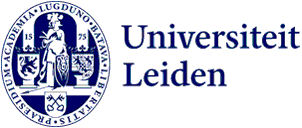
Eduard Fosch-Villaronga presents at the Technology and Sustainable Development Conference
Eduard Fosch-Villaronga, Associate Professor at eLaw, presented his work on ‘Aligning rules and actions in digital innovation’ at the conference on Technology and Sustainable Development, This event explored whether technology can be used to fix the very problems caused by technology, encompassing social, economic, and environmental sustainability.
Technological change is at the core of all major disruptions in human history, and revolutions, wars, and general development are regularly connected to some sort of technological change. However, not all development is beneficial. While technology has fuelled great innovations and rapid development, the notion of sustainable development has gained prominence as we now experience serious social, economic, environmental challenges. This conference explored whether technology can be used to fix the very problems caused by technology, and encompasses social, economic, and environmental sustainability.
Together with Marco Giraudo from the University of Turin (Italy) and Hadassah Drukarch from Leiden University, Eduard Fosch-Villaronga wrote a book chapter to contribute to the conference on a legal sustainability approach to align the order of rules and actions in the context of digital innovation.
Aligning rules and actions in digital innovation
Our book chapter explained that, while the pace of digitization and its impacts on society and markets have become an independent topic of research and debate, far less is clear on how the traditional regulatory functions of governments should evolve with these transformative changes. In this article, we explain how technology disrupts the legal ecosystem and how an uncontrolled legal environment may provide carte blanche to techno-solutionism and cause disruptions that affect practices and society. In the face of uncertainty regarding the implications of fundamental rights and liberties at the core of liberal democracies, we outline two possible legal sustainability approaches, weak and strong, respectively. We do so by borrowing from the economic literature on environmental externalities and sustainability paradigms of economic growth. In this frame, we present a three-step process to align the order of rules with that of actions to create better conditions for a smooth and sustainable co-evolution between technological ecosystems and the prevailing institutions. Such a process aims at bridging information asymmetries by generating policy-relevant data, sharing knowledge among stakeholders to understand and make sense of such information, and creating opportunities for those ideas to turn into an 'action' in the world of actions. In doing so, we strive for brokering knowledge between economic agents and regulators since only by having a shared common understanding of the state of affairs a shared normative view on the matter can follow.
About the Research group on Technology and Sustainable Development (TSD)
The Conference was hosted by Technology and Sustainable Development, a research group from Østfold University College in Norway focused on the nature of technological change and how it impacts human society and our broader environment. TSD emphasizes theoretical and philosophical approaches to the nature of technological change, and one of the main goals is to investigate and develop theories that describe and explain how technology affects individuals, groups, politics, and the environment. The group is highly interdisciplinary, open to researchers from all disciplines, and encourages collaborative research that creatively combines insight from different disciplines and traditions, including – but not limited to – political theory and science, computer science, sociology, law, psychology, economics, engineering, and philosophy.
Get our book - It’s open access!
You can read our paper by following this link that will take you to the open access book.
Did you miss it? Rewatch it here
You can rewatch the conference by following this link.



